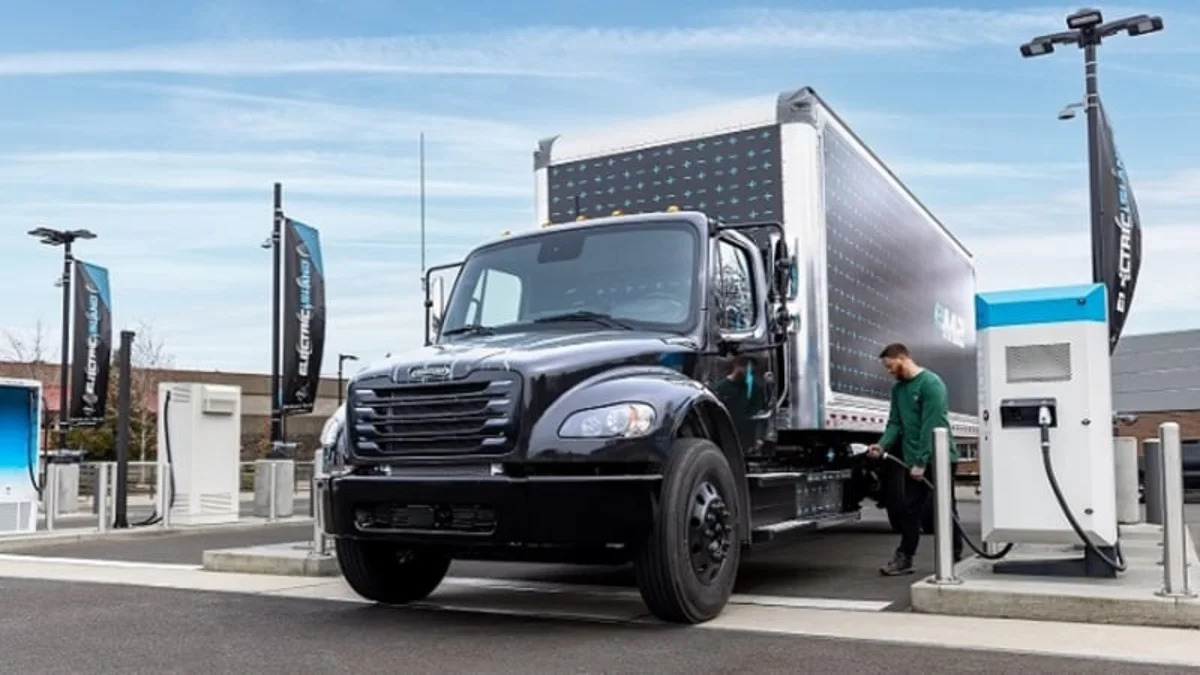The truck stop for the electric future is already underway, a multi-million dollar “Mobility Charging Hub” to be built in part with $8.5 million in federal funding, and to be located initially on Interstate 96 near Redford, Michigan.
In partnership with Daimler and DTE Energy, Michigan, which channels 30 percent of all truck and rail traffic from the US to Canada, project planners expect the facility, to be funded both by the feds and state money, will help satisfy the needs of a growing fleet of commercial EV freight as well as passenger cars.
“Freight trucks play a pivotal role in driving commerce, delivering goods, and connecting businesses throughout the nation, which is why we’re taking a future-forward approach to prepare this industry for the future and encourage other innovators and companies to consider how they, too, can make it in Michigan,” said Lt. Gov. Garlin Gilchrist II.
The selected location is at the 130-acre Daimler Truck North America’s Redford facility, which runs east-west, and already has the necessary power. It’s a busy corridor, seeing more than 10,000 medium- and heavy-duty commercial trucks travel daily through the state or across the state’s borders into Canada.
“Michigan’s ability to retain its global position as the automotive capital of the world depends in part on our ability to attract and retain industry, as well as move goods domestically and across our nearby active international borders,” said Kathryn Snorrason, Interim Chief Mobility Officer of the State of Michigan. “This new innovation hub will help preserve Michigan’s position in the automotive sector while allowing us to address emerging fleet management technologies.”
Overall, the trucking industry’s conversion to electric power is a challenging proposal. Bloomberg reported that electric truck stops would require as much power as a small town. A study from the electricity and gas utility National Grid (which serves parts of New York and Massachusetts) last year suggests that by 2030, the typical charging plaza along a highway will demand as much power as a sports arena during its busiest times.
Related video:


Sign in to post
Please sign in to leave a comment.
Continue